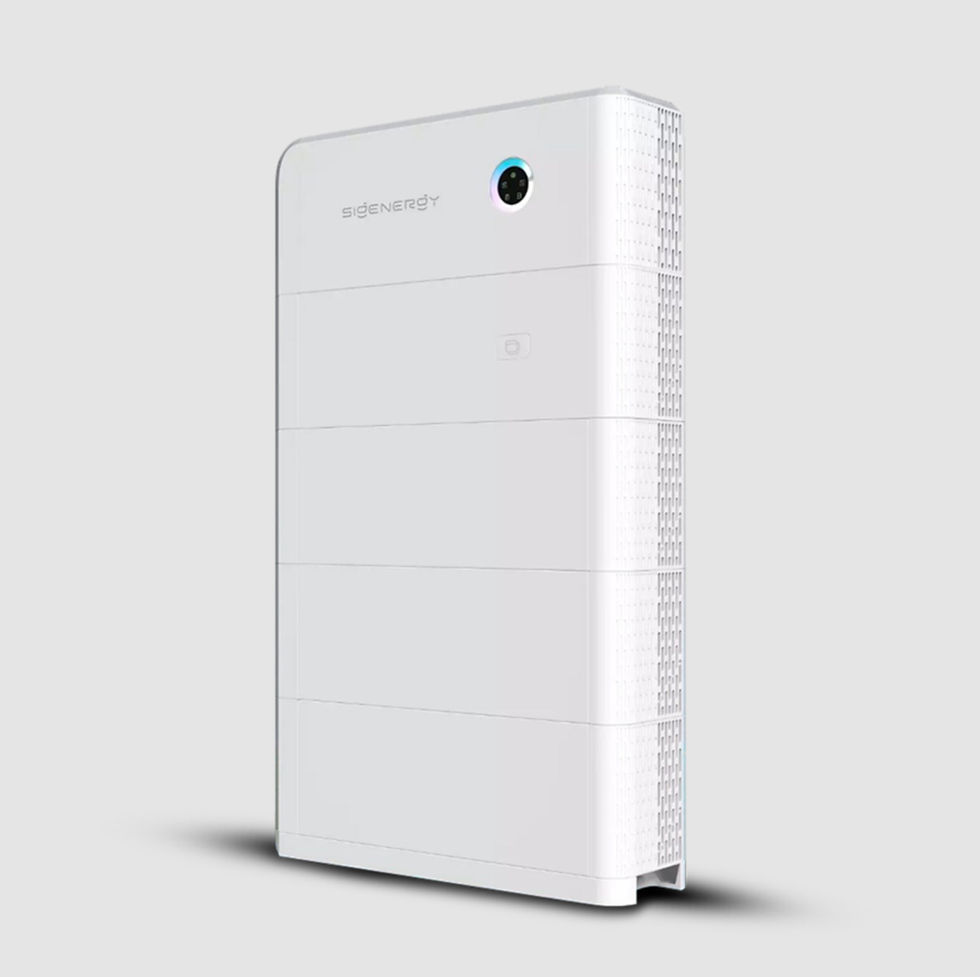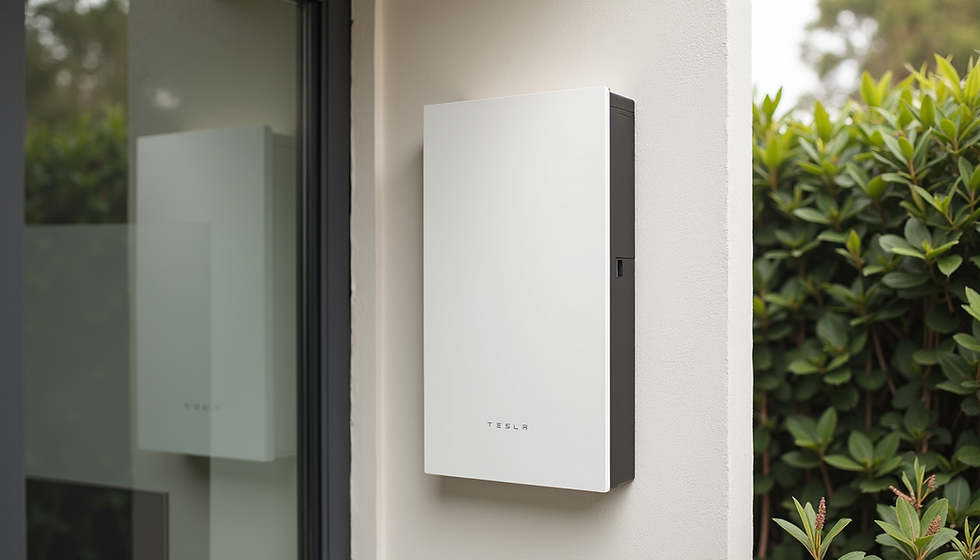Home Battery Storage Made Easy: A 2025 Comparison of Top Brands
- Jonathan Edginton
- Oct 23
- 4 min read

As the world shifts towards renewable energy, home battery storage systems have become increasingly popular. These systems allow homeowners to store energy generated from solar panels or the grid, providing a reliable power source during outages or peak demand times. With several brands vying for attention in the market, it can be challenging to determine which home battery storage solution is right for you. In this post, we will compare five leading brands in 2025: Tesla, Enphase, Sungrow, GivEnergy, and SigEnergy.
Understanding Home Battery Storage
Home battery storage systems are designed to store energy for later use. They can be charged using solar panels, wind turbines, or the electrical grid. The stored energy can then be used during peak hours, during power outages, or when energy prices are high.
The benefits of home battery storage include energy independence, reduced electricity bills, and a lower carbon footprint. As technology advances, these systems are becoming more efficient, affordable, and user-friendly.
Tesla Powerwall 3

Tesla has been a pioneer in the home battery storage market with its Powerwall series. The latest iteration, the Powerwall 3, boasts impressive features that make it a top contender in 2025.
Key Features
Capacity: The Powerwall 3 offers a capacity of 13.5 kWh, making it suitable for most households.
Efficiency: With a round-trip efficiency of 90%, it ensures minimal energy loss during storage and retrieval.
Integration: The Powerwall seamlessly integrates with Tesla solar panels and the Tesla app for easy monitoring and management.
Pros and Cons
Pros: High capacity, excellent efficiency, and robust integration with Tesla products.
Cons: Higher upfront cost compared to some competitors.
Enphase IQ5

Enphase has made a name for itself with its microinverter technology, and the IQ5battery system is no exception.
Key Features
Modular Design: Encharge batteries can be added in increments, allowing homeowners to scale their storage capacity as needed.
Smart Technology: The system includes advanced monitoring features, providing real-time data on energy usage and storage.
Compatibility: Works well with existing solar systems, making it a flexible option for many homeowners.
Pros and Cons
Pros: Modular design for scalability, smart technology, and compatibility with various solar systems.
Cons: Lower capacity per unit compared to some competitors.
Sungrow SBR Battery

Sungrow is known for its innovative energy solutions, and the SBR battery is a testament to its commitment to quality and performance.
Key Features
High Capacity: The SBR battery offers a capacity of up to 15 kWh, making it suitable for larger households.
Long Lifespan: With a lifespan of over 10 years, it provides long-term reliability.
User-Friendly Interface: The system features an intuitive app for easy monitoring and management.
Pros and Cons
Pros: High capacity, long lifespan, and user-friendly interface.
Cons: Lower discharge on smaller sizes
GivEnergy Battery Storage

GivEnergy has gained traction in the home battery market with its focus on sustainability and affordability.
Key Features
Affordable Pricing: GivEnergy offers competitive pricing without compromising on quality.
Integrated Inverter: The system includes an integrated inverter, simplifying installation and reducing costs.
Smart Features: The GivEnergy app allows users to monitor their energy usage and storage in real-time.
Pros and Cons
Pros: Affordable pricing, integrated inverter, and smart features.
Cons: Lower capacity compared to some premium brands.
SigEnergy Battery System

SigEnergy is a newer player in the home battery storage market, but it has quickly made a name for itself with innovative technology.
Key Features
Advanced Technology: SigEnergy utilizes cutting-edge lithium-ion technology for efficient energy storage.
Customizable Options: Homeowners can customize their battery systems based on their energy needs.
Sustainability Focus: The company emphasizes eco-friendly practices in its manufacturing processes.
Pros and Cons
Pros: Advanced technology, customizable options, and a focus on sustainability.
Cons: Limited brand recognition compared to established competitors.
Comparing the Brands
When comparing these five brands, several factors come into play, including capacity, efficiency, pricing, and additional features.
Capacity: Tesla and Sungrow lead in capacity, making them suitable for larger households.
Efficiency: Tesla's Powerwall 3 stands out with its high round-trip efficiency.
Pricing: GivEnergy offers the most affordable options, making it accessible for budget-conscious homeowners.
Smart Features: Enphase and GivEnergy excel in providing user-friendly apps for monitoring and management.
Conclusion
Choosing the right home battery storage system in 2025 requires careful consideration of your energy needs, budget, and preferences. Tesla, Enphase, Sungrow, GivEnergy, and SigEnergy each offer unique features that cater to different types of homeowners.
By understanding the strengths and weaknesses of each brand, you can make an informed decision that aligns with your energy goals. As technology continues to evolve, home battery storage will play a crucial role in creating a sustainable and energy-efficient future.
With the right system in place, you can enjoy the benefits of energy independence, reduced electricity bills, and a smaller carbon footprint.
As you explore your options, remember to consider not just the initial investment but also the long-term savings and environmental impact of your choice.
By investing in a home battery storage system, you are not just enhancing your home; you are contributing to a greener planet.




Comments